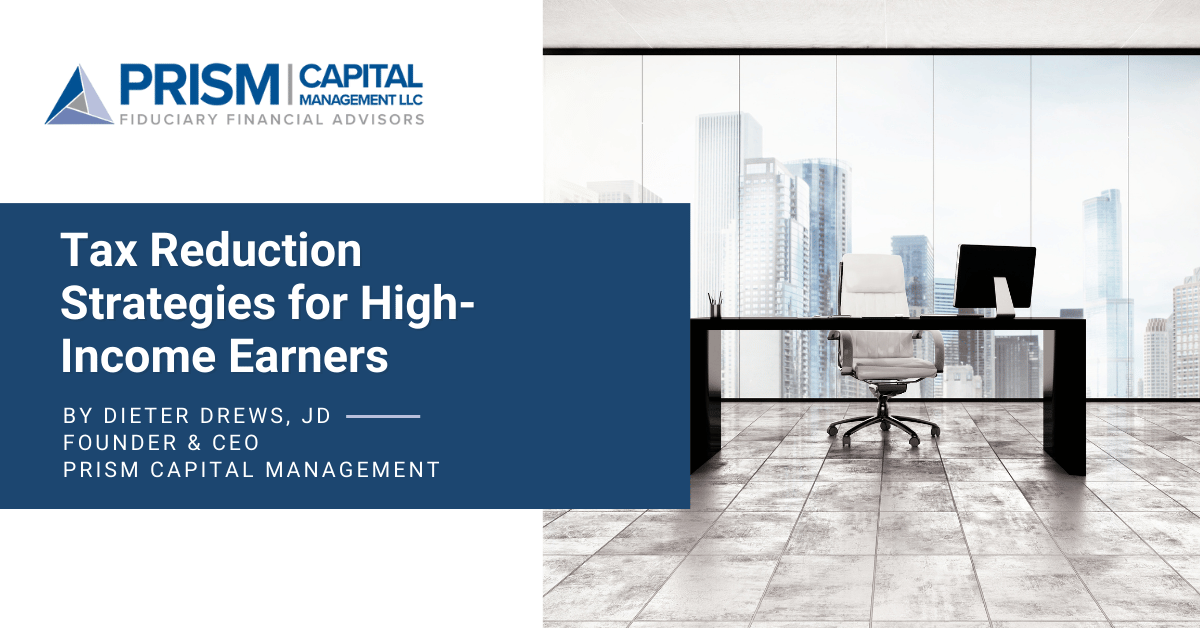Tips to Help Lower Your Taxable Income
For high-income earners, effective tax planning is essential to maximize savings and retain more of your hard-earned money. With careful strategy, you can reduce your taxable income and take advantage of opportunities to minimize your overall tax liability. Below, we’ve outlined some key tax reduction strategies to help you navigate this process.
Maximize Contributions to Tax-Advantaged Accounts
One of the simplest ways to lower your taxable income is to contribute to tax-advantaged accounts like 401(k)s, traditional IRAs, and Health Savings Accounts (HSAs). High-income earners may also benefit from contributing to defined benefit plans or cash balance plans, which allow for even larger tax-deferred contributions.
Explore Charitable Giving Opportunities
Charitable contributions not only help support causes you care about but also provide significant tax benefits. Consider donating appreciated assets such as stocks or mutual funds, which can help you avoid capital gains taxes while claiming a deduction for the fair market value of the asset.
Utilize Tax-Efficient Investments
Investing in municipal bonds, tax-managed funds, or other tax-efficient vehicles can help reduce your taxable income. Additionally, strategies like tax-loss harvesting—selling investments at a loss to offset capital gains—can further lower your tax bill.
Take Advantage of Deductions and Credits
High-income earners should explore deductions such as mortgage interest, state and local taxes (subject to limits), and education-related expenses. Be sure to investigate any applicable tax credits, such as the energy-efficient home improvement credit, which can directly reduce your tax liability.
Implement Business Tax Strategies
If you’re a business owner or self-employed, consider strategies like setting up a retirement plan for your business, taking advantage of the Qualified Business Income (QBI) deduction, or restructuring your business entity to optimize tax benefits.
Consider Income Timing and Deferral
Timing is everything when it comes to taxes. High-income earners can explore strategies to defer income into a future tax year—such as through deferred compensation plans—or accelerate deductions in the current year to lower taxable income.
Work with a Tax Professional
Navigating the complexities of tax planning requires expertise, especially for high-income earners with diverse income sources and assets. Partnering with a tax advisor or financial planner can help ensure you’re leveraging every available strategy to reduce your tax burden.
By implementing these strategies and staying proactive with your tax planning, you can protect more of your income and invest in your financial future. At Prism Capital Management, we’re here to help you create a personalized tax strategy tailored to your unique financial goals. Contact us today to learn more.
Financial Services for Real People
Founded for the benefit of clients, Prism Capital Management is an independent Seattle and Skagit-based firm with a deep commitment to providing guidance that is free of conflicts of interest, based solely on the sum of our experience and expertise. We are committed to putting client interests first and to stewarding both wealth and well-being for those we serve. We have a singular measure of success: the results we get for our clients.
As an Investment Advisor, we have a fiduciary duty to act in YOUR best interest. From planning to investment management to advice on buying a car, we are your financial life partners.




